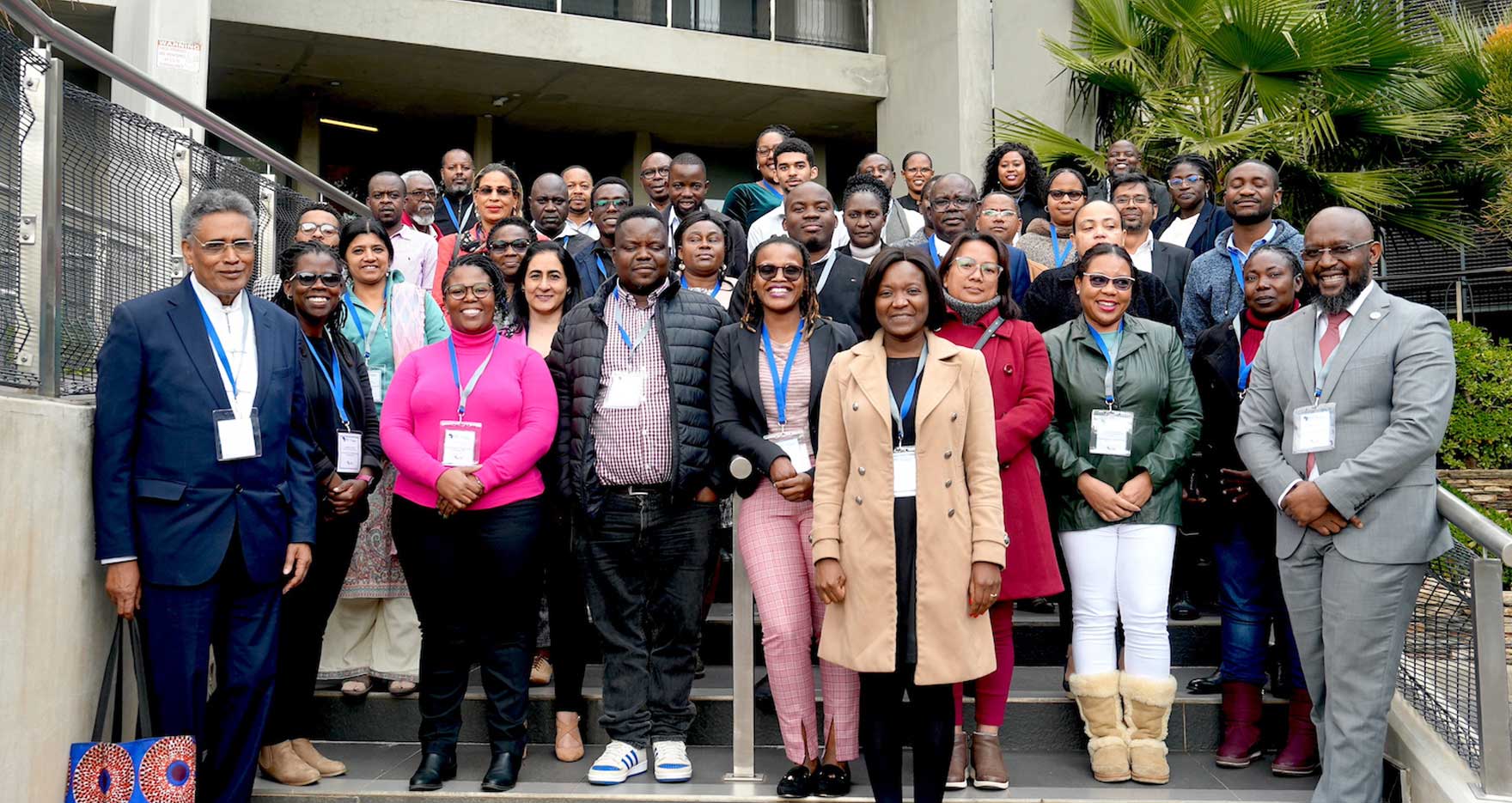In Africa, while Artificial Intelligence (AI) and data science applications in research are rapidly advancing, significant gaps and challenges still exist. Limited access to high-quality data, inadequate infrastructure, policy ecosystem and the need for capacity building are some of the hurdles that the continent needs to overcome.
The Science for Africa Foundation (SFA Foundation), in collaboration with the African Open Science Platform (AOSP) hosted by the National Research Foundation (NRF), held an AI & Data Science policy convening aiming to address the critical policy gaps in AI and Data Science within the context of global health. The convening, titled “Bridging Policy Gaps for AI and Data Science in Global Health: A Pan-African Perspective,” took place in Pretoria, South Africa, bringing together leading experts, policymakers, researchers, civil society, public entities, and stakeholders from the 16 SADC countries. The Pretoria event was the first in a series of five workshops being held across the regions of Africa to map the country and regional policy gaps in AI and data science and to identify the R&D goals of AI and opportunities for global health from an African perspective.
Dr Uzma Alam, Senior Programme Officer and lead of Science Policy Engagement for Africa at the SFA Foundation, said: “The convening aims to advance policy discussions ensuring that Africa sets its own standards for how it wants AI and data science governed. This includes ensuring the responsible and ethical use of AI and data science technologies for positive impact in Africa. It will serve as a catalyst for transformative research collaborations and generate knowledge that addresses Africa’s most pressing health challenges.”
Africa faces numerous health challenges thus, leveraging AI and data sciences has the potential to revolutionise healthcare delivery including point-of-care, diagnosis and advancing research based on real-time data to improve patient outcomes and inform evidence-based decision-making. However, the development and implementation of effective policies in these areas remain critical.
The objectives of the convenings are to:
- Build an understanding of the gaps in national, regional, and continental policies for the development, application, and governance of AI and Data Science, with a focus on genomics, epidemics and pandemics, clinical trials, and drug development
- Explore the benefits and challenges of utilising data science and AI in global health, including ethics and governance issues
- Provide a platform for sharing best practices, innovative approaches, and lessons learned in implementing data science and AI initiatives in global health
- Identify knowledge and research gaps and foster collaborations between academia, industry, and government
Dr Nokuthula Mchunu, Deputy Director of Strategic Partnerships at the African Open Science Platform, emphasised the significance of AI and data sciences in genomics research, stating, “The integration of AI and data science in genomics has the potential to unlock valuable insights into the genetic basis of diseases prevalent in Africa. By leveraging these technologies, we can accelerate the discovery of novel treatments and interventions, paving the way for more personalised and effective healthcare.”
Dr Uzma Alam added by highlighting the role of AI and data science in pandemics and clinical trials, saying, “In the face of global health emergencies like pandemics, AI and data science have game-changing potential in predicting outbreaks, tracking the spread of diseases, and supporting the response by harnessing these tools and fostering collaborative research efforts, we can enhance Africa’s preparedness and response to future health crises. “
The AI and data sciences convenings also aim to foster collaborations and to inform the development of robust policies that will propel Africa to the forefront of AI and data-driven research in global health.
